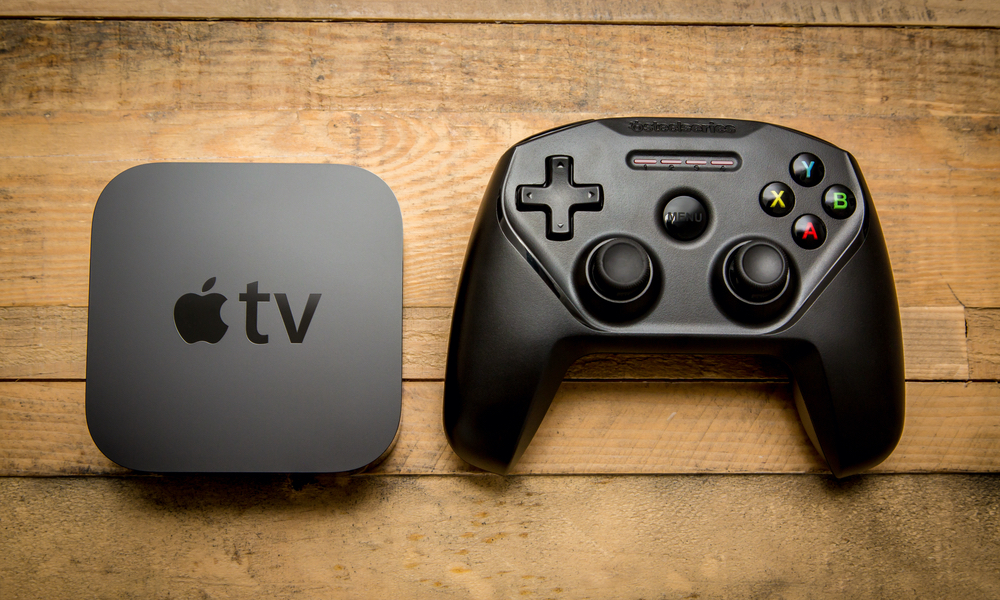Here’s Why Your Favorite Retro Game Emulators Haven’t Come To the Apple TV
 Credit: ExhaustedResearch / Shutterstock
Credit: ExhaustedResearch / Shutterstock
Toggle Dark Mode
Apple surprised us when it made a complete turnaround on cloud gaming services on the App Store in January, then added even more good news in April when it told developers that game console emulators would also be allowed.
That latter decision has opened up a whole new world of apps that were previously “appa non grata” on the iPhone and iPad, letting folks play their favorite classic titles from the NES, PSP, and more using emulators now freely and easily available on the App Store.
That’s ushered in an exciting era for gaming on the iPhone and iPad, but sadly, it doesn’t seem to have translated to the Apple TV. While emulators like Delta work well over AirPlay, it’s still not the same as a native tvOS experience.
However, as fast as these apps are coming to the iPhone and iPad, very few have shown up for the Apple TV. Contrary to what some have thought, Apple isn’t specifically restricting these apps from its set-top box, but some unintended consequences of how tvOS works have made some developers decide that porting their apps to the Apple TV isn’t worth the effort, as it will provide a poor experience for gamers.
As AppleInsider points out, tvOS has never been great at allowing apps to use persistent storage. Apps can only store about 500KB of persistent data on an Apple TV; everything else is considered a temporary cache that’s subject to the whims of tvOS.
The 500 KB allotment is designed so that apps can store preferences and settings, but it’s definitely not enough to handle the game ROMs that emulators require to do their thing.
One of the few emulators to make the crossover attempt, RetroArch, demonstrates the problem. Those who have tried the emulator on the Apple TV have noticed their games suddenly disappearing as tvOS cleans out the cache when it believes it needs the space for something else.
That’s not a bug, but rather a feature. At least that’s what Apple would have you believe. It documents the limitation in its App Programming Guide for tvOS, suggesting that apps “must be able to store data in iCloud” instead, “and retrieve it in a way that provides a great customer experience.”
The maximum size for a tvOS app bundle 4 GB. Moreover, your app can only access 500 KB of persistent storage that is local to the device (using the NSUserDefaults class). Outside of this limited local storage, all other data must be purgeable by the operating system when space is low.
The good news is that tvOS won’t pull the rug out from under an app while it’s running, but all bets are off once you exit the app. Any data over the 500 KB limit can be purged at any time.
In a Mastodon thread, developer Ole Begemann called out this limitation as “unacceptable,” asking what the point is of even selling a 128GB Apple TV if none of the storage is persistent.
It’s clear this is the number one thing holding many developers back. Delta emulator developer Riley Testut responded to the thread to say that “no persistent storage is honestly a big reason why I haven’t yet ported Delta to Apple TV.”
Perhaps even more sadly, this issue was likely the cause of Minecraft’s death on the platform. According to one commenter on that thread, Microsoft “didn’t discontinue [Minecraft] because they got bored, people kept losing data and they couldn’t fix it.”
Minecraft launched on the Apple TV in late 2016 but only lasted about two years before being pulled from the tvOS App Store in late 2018. Neither Mojang nor Microsoft provided any specific technical reasons for its demise beyond saying that the companies needed “to reallocate resources to the platforms that our players use the most.” However, it seems plausible that the peculiarities of the Apple TV’s storage management became a support headache and took up a disproportionate number of those resources.









